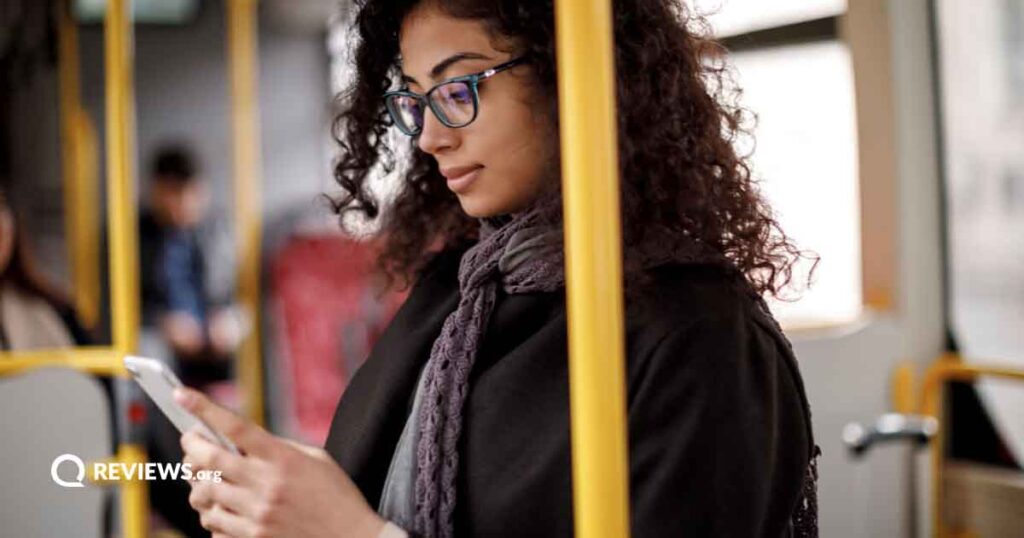Most of the time, yes, you should use your virtual private network (VPN)—but not always. It depends on what reasons you’re using a VPN service in the first place. If you’re only using a VPN connection while streaming your favorite TV shows, then it makes sense to turn your VPN server on or off for those purposes (like turning it off when you want faster internet).
Should You Leave Your VPN On All the Time?
But if you’re using a VPN for privacy reasons or to keep yourself anonymous online, then you should keep it on all the time. Since your VPN is your best form of protection against hackers and helps keep your information private, it’s best to leave your VPN on whenever you’re on the internet.
When should I have my VPN on?
Below, you’ll find a short list of reasons to keep your VPN on, but there are many reasons we didn’t list. A VPN helps you maintain online privacy, security, and stay anonymous online, which is especially important in stopping hackers. But how often do you need to have it on?
Here are some of the most common scenarios where you should keep your VPN on:
- When you are using public Wi-Fi
- When you want to browse the internet privately
- Whenever you’re doing online banking or shopping
- To have more browsing freedom
Using public Wi-Fi
Number one is extremely important. Whenever you’re connected to public Wi-Fi, there’s a higher chance that someone else connected to the Wi-Fi can hack your personal data and IP address. In order to keep your information safe, it helps to use a VPN whenever you’re in public places.
It’s easy for hackers to steal information to your device by using MITM (man-in-the-middle) attacks. This happens when a hacker can essentially “stand” between your device and the Wi-Fi network you’re using. It only takes a hacker 15 minutes to steal your information when performing a MITM attack.1
In addition to being more susceptible to hackers, 34% of public Wi-Fi networks aren’t encrypted, making it even easier for someone to steal your data.2 So long story short, keep your VPN on when you’re using public Wi-Fi.
Browsing the internet privately
If you want more privacy while browsing the internet, then you should definitely keep your VPN on. VPNs use encryption software to keep your information private. In 2017, Congress passed a bill that allows internet providers to sell your search history to advertisers.3 Because of this decision, privacy is not a guaranteed right on the internet. If you want to be safe and keep your information private, invest in a good VPN.
Banking and shopping online
Whenever you do online banking or shopping, use your VPN. Online banking requires you to share sensitive information about your finances, various passwords, and bank account information. Don’t make things easy for a hacker by accessing this information without a VPN. Your sensitive data (including credit card information) needs to be kept private and protected.
Browsing freely
Another reason for keeping your VPN on is to have more freedom to browse. Whether it has to do with research for school or accessing websites that are monitored by the government, keeping your VPN on will prevent you from running into website censorship.
You can access the content you’re looking for by connecting to a country where it’s available. Just make sure you’re following your VPN’s terms of use policy and respecting the laws of the country you’re using.
Are there any reasons to turn your VPN off?
Slow internet isn't always because of your internet service provider. A VPN will slow your internet speed slightly. Even though it’s hard to say if you’ll notice the difference, you might decide to turn off your VPN to improve your internet speed.
You will most likely notice slower internet if your VPN is connected to a server far away from you. In order to prevent this from happening, connect to a closer server. Some VPNs are known for their streaming capabilities. When you use these, it’s less likely you’ll notice a difference in your connection speed.
Turning off your VPN can help protect your battery life. Some VPNs are known for draining your battery faster, although this isn’t true for all VPNs. If your VPN is causing your network to timeout and making you sign in multiple times, it might be affecting your battery. In order to prevent this, make sure you use a VPN provider that’s reliable, tested, and trusted. NordVPN, Private Internet Access, Hotspot Shield, and ExpressVPN are all high-quality VPN clients that provide secure connections and give you lots of server options to choose from.
Turning your VPN on and off is helpful, depending on why you use a VPN. In order to protect your privacy and keep your information safe from hackers, it helps to just keep your VPN on. That way, you won’t forget to turn it back on when you’re using public Wi-Fi.
Check out more information on what a VPN is and why you should use one
Compare our picks for the best VPNs
Sources
- CactusVPN, “How to Protect Yourself on Public Wi-Fi (12 Tips).” Accessed July 21, 2020.
- CactusVPN, “Should I Leave My VPN On All the Time?” Accessed July 21, 2020.
- Taylor Hatmaker, Tech Crunch, “Congress Just Voted to Let Internet Providers Sell Your Browsing History,” March 28, 2017. Accessed July 21, 2020.
Related Articles



